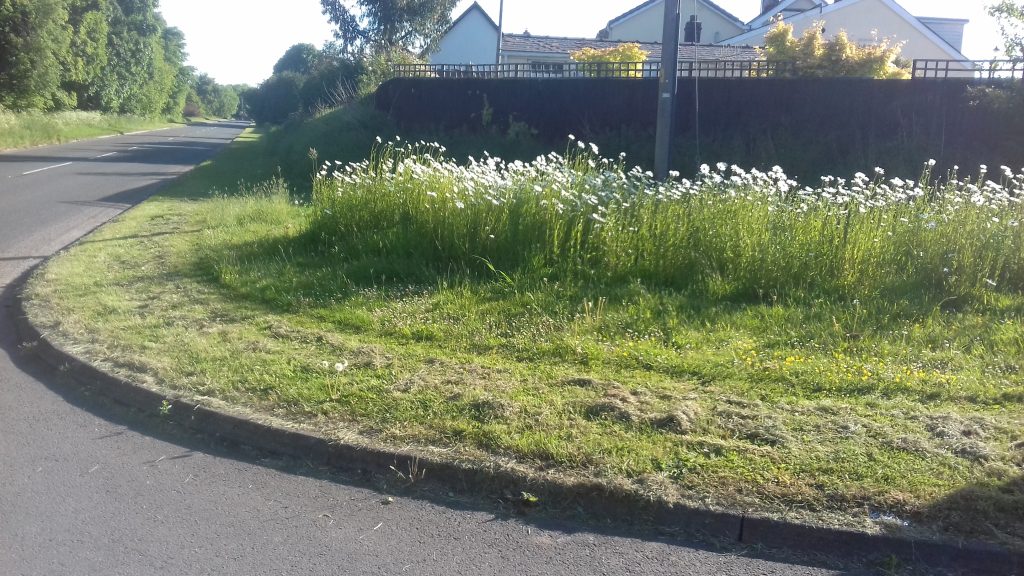
This year has seen significantly more wild meadow areas across Monmouthshire’s open spaces, as the council’s ground maintenance teams have left verges and parks largely unmowed to allow wild flowers to grow and attract more pollinators. These measures have helped to support biodiversity and contribute to Monmouthshire County Council’s climate change action plan. Feedback has been very positive, and it the council’s actions were recently highlighted by the BBC natural history series Springwatch.
The move to a more restrained mowing approach throughout the spring has brought with it learning and adaptation and a new set of challenges as the summer approaches. The extended period of non-mowing gave a fantastic opportunity to witness a host of flora within parks and public spaces grassland.
Management to protect the ecological value of meadow grassland will entail some cutting and in many situations the grass will also need to be collected. This will help lower nitrates within the turf, presenting a more suitable environment for indigenous flora to germinate again.
The logistics of this operation are complex, not least due to the council’s fleet of mowers not adapted to handle this type of grassland. In addition, the council will need to look into the transportation and disposal of grass cuttings, something not undertaken on this scale before.
“To leave this work until the end of the summer will be extremely problematic, and should any difficulties arise we would have little capacity and resilience within our teams to manage this workload. Therefore, we have made a decision to start trialling some cutting and collecting of smaller verges and patches of meadow grassland on our open spaces where the flora has now finished flowering,” said Councillor Jane Pratt, Cabinet Member with responsibility for parks and open spaces.
“This will allow us to stagger the workload and inform our logistics planning. We will also get a better understanding of the limitations of the machinery we have available and give us information to consider purchases of new machinery. Importantly, the unusual circumstances this year will continue to play a role in helping us learn what we can and cannot achieve. This is invaluable in developing how we will adapt the management of our open spaces over the coming years.”
“Monmouthshire has been the focus of interest by other councils throughout the country, who want to learn more about what we have done and what we are planning for the future. Monmouthshire County Council’s reduced mowing programme has also received recognition recently from the naturalist Iolo Williams on BBC Springwatch. This acclaim is due to the work of not just the council, but residents, community groups, Monmouthshire Housing Association and town councils, who have wholeheartedly supported campaigns such as Nature Isn’t Neat and No Mow May. We are keen to keep working to improve biodiversity further and build upon this success,” said Councillor Pratt.
The council will continue the ‘meadow management’ regime of Monmouthshire’s open spaces for the foreseeable future.